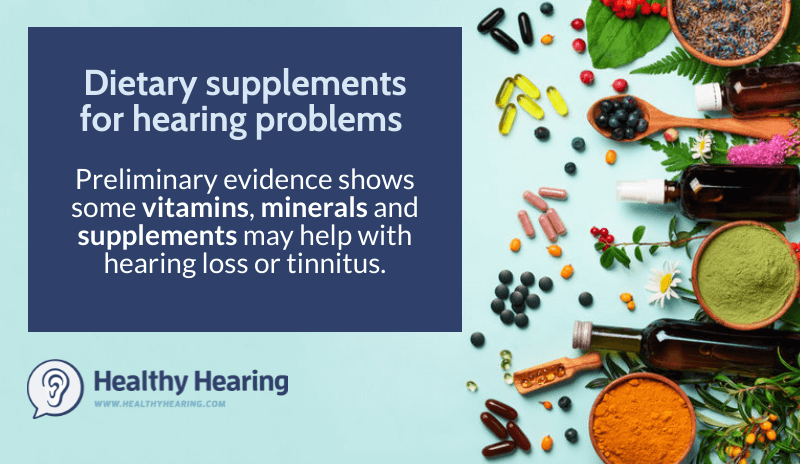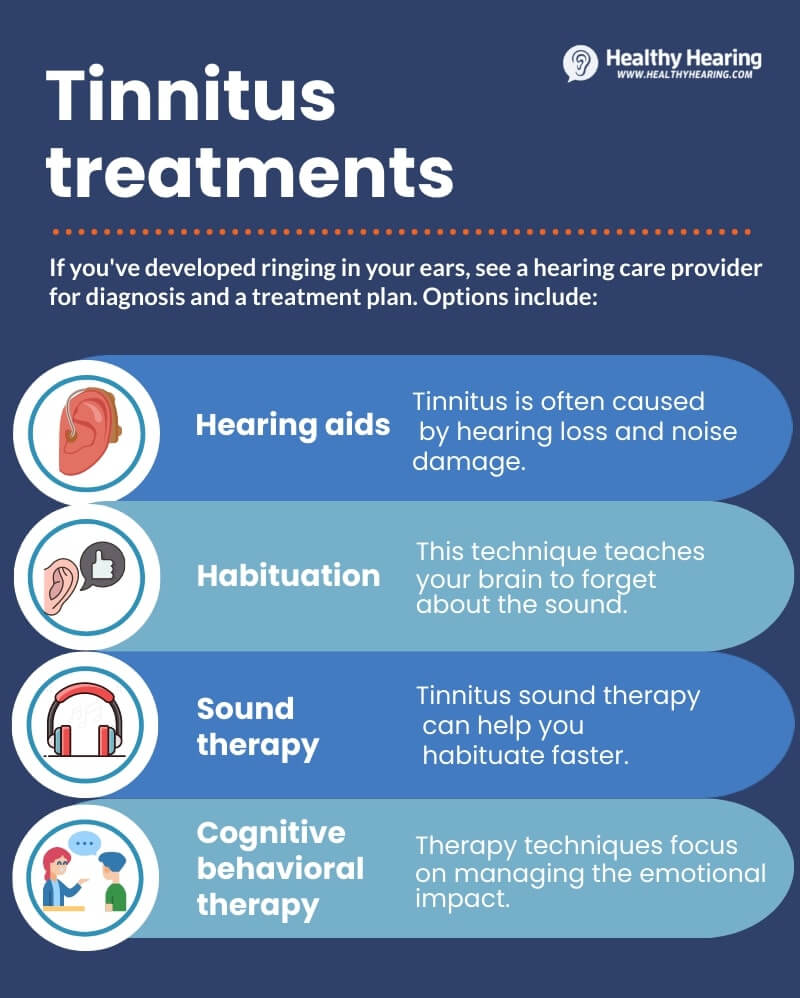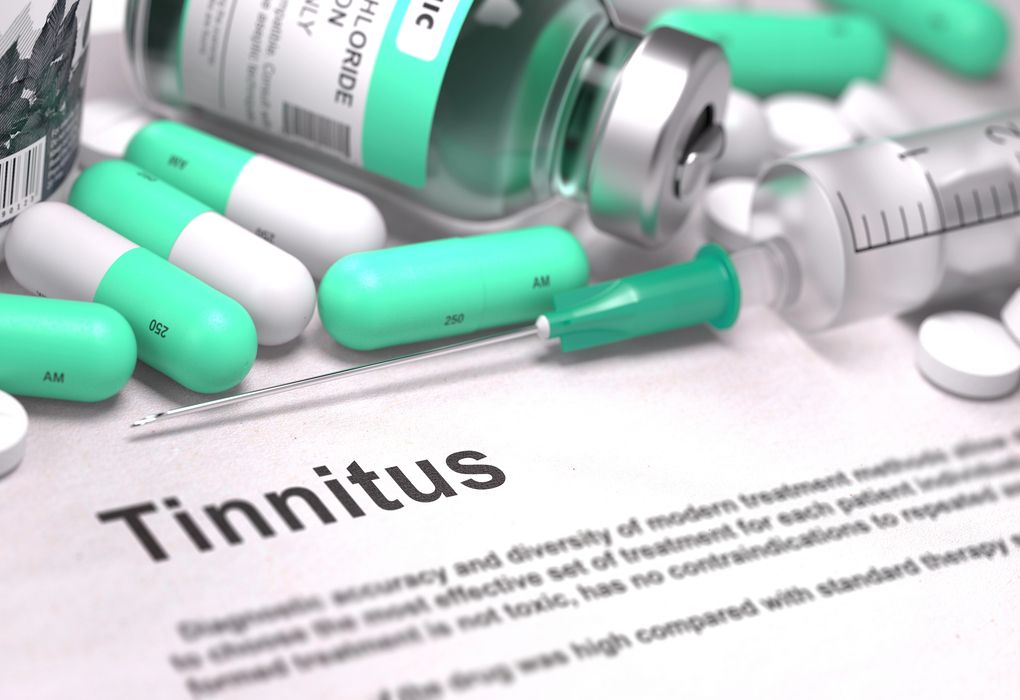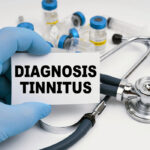Key Takeaways
- While no medication can completely cure tinnitus, several prescription drugs including anti-anxiety medications and antidepressants may help reduce symptom severity
- Natural supplements like Ginkgo biloba, zinc, and magnesium show promise for tinnitus relief, though clinical evidence varies in strength
- Melatonin can be particularly effective for those whose tinnitus disrupts sleep patterns
- Finding the right tinnitus treatment often requires trying multiple approaches, as responses are highly individual
- Non-drug alternatives like hearing aids and sound therapy can complement medication approaches for better overall results
That persistent ringing, buzzing, or hissing in your ears isn’t just annoying—it can significantly impact your quality of life. If you’re among the millions seeking relief from tinnitus, understanding your medication options is crucial to finding an effective management strategy. While no single treatment works for everyone, several pharmaceutical approaches have shown promise in clinical settings.
Tinnitus affects each person differently, which is why treatment approaches vary widely. The American Tinnitus Association recognizes that finding the right solution often involves trying multiple options before discovering what works best for your specific symptoms. Working with healthcare professionals who understand the complex nature of tinnitus is essential for developing an effective treatment plan that may include medication as one component.
Prescription Medications That May Reduce Tinnitus Symptoms

“The Five Most Common Causes of Tinnitus” from www.audionova.com and used with no modifications.
When tinnitus significantly impacts daily functioning, prescription medications may offer relief. These drugs don’t typically eliminate tinnitus completely but can make symptoms more manageable by addressing underlying conditions or reducing the psychological burden of persistent noise. Your doctor might recommend medications based on your specific symptoms, overall health, and whether your tinnitus is linked to anxiety, depression, or sleep disturbances.
Anti-Anxiety Medications: Valium and Other Benzodiazepines
For many people with tinnitus, anxiety not only results from the condition but can also worsen symptoms, creating a frustrating cycle. Benzodiazepines like Valium (diazepam) may help break this cycle by reducing anxiety levels. These medications work by enhancing the effect of the neurotransmitter GABA in the brain, which helps calm neural activity that might contribute to both anxiety and the perception of tinnitus sounds. However, these medications carry risks of dependence and are typically prescribed for short-term use only under careful medical supervision. For more information on medication options, you can read about tinnitus treatment medications.
Antidepressants: Elavil and Similar Options
Tricyclic antidepressants such as Elavil (amitriptyline) have shown effectiveness for some tinnitus sufferers, particularly when the condition co-exists with depression. These medications alter levels of neurotransmitters in the brain that affect mood and pain perception, which may indirectly influence how the brain processes tinnitus signals. The dosages prescribed for tinnitus are often lower than those used for depression, which can help minimize side effects while still providing symptom relief. Some patients report improvements within a few weeks of starting treatment, though finding the optimal dosage may require adjustments over time.
Steroids Combined with Alprazolam
For certain types of tinnitus, especially those with an inflammatory component or sudden onset, a combination approach using steroids and anti-anxiety medication may provide relief. Steroids delivered directly to the middle ear can reduce inflammation that might be contributing to tinnitus symptoms. When combined with alprazolam (Xanax), this approach addresses both physical and psychological aspects of tinnitus. This combination therapy is particularly considered for cases where tinnitus appeared suddenly or follows an identifiable event like acoustic trauma or infection.
Misoprostol: A Hormone Treatment Option
Misoprostol, a synthetic prostaglandin E1 analog typically used for gastric conditions, has shown potential in treating specific types of tinnitus. Some small studies indicate it may be helpful for patients whose tinnitus results from inner ear damage or certain vascular conditions. The mechanism isn’t fully understood, but it may relate to improved blood flow to the cochlea or modulation of neural activity in auditory pathways. As with many tinnitus treatments, results vary significantly between individuals, and this medication is not commonly prescribed as a first-line treatment. For more insights, you can read about common tinnitus questions answered by top audiologists.
Over-the-Counter Solutions for Tinnitus Relief

“Is There a Magic Pill? | American …” from www.ata.org and used with no modifications.
When prescription medications aren’t necessary or desired, several over-the-counter options may help manage tinnitus symptoms. These accessible treatments can be particularly useful for milder cases or as part of a comprehensive management approach. While OTC options typically have fewer side effects than prescription medications, they should still be discussed with a healthcare provider, especially if you have other medical conditions or take additional medications.
Melatonin for Sleep Improvement
Melatonin offers particular benefits for tinnitus sufferers whose symptoms worsen at night or cause sleep disturbances. This naturally occurring hormone regulates sleep-wake cycles and may help reduce the perceived intensity of tinnitus during nighttime hours. Research suggests that taking melatonin supplements approximately one hour before bedtime can improve sleep quality and reduce tinnitus-related sleep disturbances. For more information on how to manage these issues, you can explore tinnitus relief and treatments. The typical recommended dosage ranges from 3-10mg, though starting with a lower dose and adjusting as needed often yields the best results with minimal side effects.
OTC Pain Relievers: Benefits and Limitations
Common over-the-counter pain relievers like aspirin, ibuprofen, and acetaminophen present a paradox for tinnitus sufferers. While they may occasionally help reduce tinnitus symptoms when inflammation contributes to the condition, these medications—particularly aspirin and other NSAIDs—can actually worsen tinnitus in some individuals. This reaction is highly individual and dose-dependent. If you notice your tinnitus intensifies after taking these medications, it’s advisable to discuss alternative pain management strategies with your healthcare provider. For those who find these medications helpful, using the lowest effective dose minimizes the risk of adverse effects.
Natural Supplements That Show Promise

“Hearing loss supplements and herbal …” from www.healthyhearing.com and used with no modifications.
Ginkgo Biloba: The Research Evidence
Ginkgo biloba stands out as one of the most studied natural supplements for tinnitus relief. Its potential effectiveness stems from its ability to improve circulation, particularly to the inner ear, and its antioxidant properties that may protect delicate auditory structures. Multiple clinical studies have investigated ginkgo’s efficacy, with some showing modest improvements in tinnitus symptoms after several weeks of consistent use. The standard recommended dosage typically ranges from 120-240mg daily, divided into multiple doses. While not effective for everyone, ginkgo’s relatively good safety profile makes it a reasonable option to consider, especially for those with circulatory components to their tinnitus. For more insights on what works and what doesn’t, check out this comprehensive guide on tinnitus treatment medication.
Zinc Supplements: Who Might Benefit
Zinc deficiency has been linked to tinnitus in some research, suggesting supplementation might benefit certain individuals. This essential mineral plays crucial roles in immune function and cellular metabolism, including within the auditory system. Those most likely to benefit from zinc supplementation include older adults, vegetarians, and people with conditions that affect nutrient absorption. Studies indicate that zinc supplementation may be most effective for those with confirmed deficiencies rather than as a universal treatment. A typical therapeutic dosage ranges from 25-50mg daily, though this should be determined in consultation with a healthcare provider to avoid potential toxicity or interactions with other medications.
Magnesium: Connection to Nerve Function
Magnesium’s relationship to tinnitus stems from its fundamental role in nerve function and cellular energy production. This mineral helps regulate electrical activity in the nervous system, including the auditory pathways. Research suggests magnesium deficiency may contribute to noise-induced hearing loss and tinnitus by allowing increased susceptibility to cellular damage. Supplementation appears most beneficial for those with noise-induced tinnitus or magnesium deficiency, though determining deficiency often requires blood testing. Common supplemental doses range from 300-500mg daily, with magnesium glycinate or citrate forms typically being better tolerated than magnesium oxide. For more insights, you can read about tinnitus treatment medication options.
- Magnesium may protect against noise-induced hearing damage when taken preventatively
- Can reduce glutamate activity, potentially decreasing hyperexcitability in auditory neurons
- Often combined with other nutrients like B vitamins for enhanced effectiveness
- May have additional benefits for sleep quality and stress reduction, both relevant to tinnitus management
The effectiveness of natural supplements varies significantly between individuals, largely due to differences in the underlying causes of tinnitus. What works wonderfully for one person might produce no benefit for another. This variability highlights the importance of a personalized approach to tinnitus management. When trying supplements, experts recommend keeping a symptom journal to track changes in tinnitus perception, which can help identify patterns and determine effectiveness over time. For those seeking immediate relief, explore quick relief tips for tinnitus.
Quality and purity remain important considerations when selecting supplements. Choose products from reputable manufacturers that undergo third-party testing to ensure you’re getting what’s advertised without harmful contaminants. Always inform your healthcare provider about supplements you’re taking, as even natural products can interact with medications or affect certain health conditions.
Comparative Effectiveness of Tinnitus Medications

“Medications for Tinnitus – Audien Hearing” from audienhearing.com and used with no modifications.
Expert Perspective: “Tinnitus treatment effectiveness varies tremendously between individuals. What works well for one patient may do nothing for another. This is why we typically recommend a stepped approach, starting with safer options and progressing to more potent medications only when necessary. The goal isn’t necessarily complete silence, but rather reducing tinnitus to a manageable level that doesn’t significantly impact quality of life.”
When comparing medication options for tinnitus, effectiveness must be considered alongside safety, accessibility, and individual factors. Prescription medications typically show stronger effects for severe tinnitus but come with more significant side effect profiles. Natural supplements often provide modest benefits with fewer adverse effects, making them appropriate first-line options for many patients. For more insights on which supplements might be effective, you can explore the comparison of Tinaway vs. Quietus. The timing of treatment also matters—intervening earlier in the course of tinnitus development may yield better results than waiting until the condition becomes firmly established.
Cost considerations also factor into treatment decisions. Insurance coverage for tinnitus medications varies widely, with many prescription options covered at least partially while supplements typically require out-of-pocket payment. However, the long-term costs of managing a chronic condition like tinnitus extend beyond medication expenses to include potential impacts on work productivity, mental health treatment, and quality of life. Finding effective treatment early can provide significant economic benefits by minimizing these broader impacts. For instance, exploring options like Lipo-Flavonoid Plus may offer insights into supplement efficacy and costs.
Patient expectations play a crucial role in treatment satisfaction. Those expecting complete elimination of tinnitus often report disappointment with treatment outcomes compared to those with more realistic goals of symptom reduction. Healthcare providers can help establish appropriate expectations by explaining that successful treatment typically means reducing tinnitus to a manageable level rather than achieving complete silence. This perspective shift can significantly improve perceived treatment success and patient satisfaction. For more insights, explore common tinnitus questions answered by experts.
Success Rates Among Different Drug Classes
When examining success rates across medication categories, antidepressants and anti-anxiety medications show the most consistent positive outcomes, helping approximately 40-60% of patients achieve meaningful symptom reduction. These medications work particularly well when tinnitus co-exists with depression or anxiety disorders. Their effectiveness likely stems from addressing both the neural pathways involved in tinnitus perception and the emotional response to symptoms.
Natural supplements show more variable results, with success rates typically ranging from 30-50% depending on the specific supplement and individual factors. Ginkgo biloba demonstrates the most robust evidence base among supplements, while zinc and magnesium show promise primarily in deficiency-related tinnitus. The more targeted the approach—matching the supplement to the specific underlying mechanism—the higher the likelihood of success.
Combination approaches often yield the best results, with success rates increasing to 60-70% when medications are paired with non-pharmacological interventions like sound therapy or cognitive behavioral therapy. This integrated approach addresses multiple aspects of tinnitus simultaneously, creating synergistic effects that exceed what any single treatment can accomplish alone.
Reported Side Effects to Consider
Each medication category carries its own side effect profile that must be weighed against potential benefits. Prescription options typically present more significant concerns, with antidepressants potentially causing dry mouth, constipation, dizziness, and sexual dysfunction. Benzodiazepines carry risks of dependence, cognitive impairment, and rebound anxiety, making them suitable only for short-term use in most cases. For those exploring alternative treatments, acupuncture for tinnitus has been discussed as a potential option.
Natural supplements generally have milder side effect profiles, though they’re not entirely risk-free. Ginkgo biloba may increase bleeding risk, particularly when combined with blood-thinning medications. Zinc can cause nausea or alter copper absorption at higher doses. Magnesium supplements occasionally cause digestive discomfort or loose stools, though this often improves with time or by switching to more easily absorbed forms.
The temporal pattern of side effects often differs from beneficial effects, with adverse reactions typically appearing before therapeutic benefits. This timing discrepancy can challenge treatment adherence, as patients might experience side effects while still waiting for symptom improvement. Understanding this pattern helps set appropriate expectations and encourages persistence with promising treatments through the initial adjustment period.
Combination Approaches for Better Results
The complexity of tinnitus often necessitates multi-modal treatment strategies that combine pharmaceutical interventions with other therapeutic approaches. Medication may reduce the perceived loudness or distress of tinnitus, creating a foundation upon which other treatments can build. Sound therapy, for instance, becomes more effective when anxiety is well-controlled, allowing patients to better engage with habituation techniques.
Strategic combinations might include an antidepressant to address emotional aspects alongside melatonin for sleep disturbances. Or perhaps zinc supplementation combined with sound masking devices for those with nutritional deficiencies and hearing loss. These tailored approaches recognize that tinnitus rarely stems from a single cause and thus rarely responds to a single solution.
Treatment sequencing also matters in combination approaches. Beginning with simpler, safer interventions before progressing to more potent options allows for systematic evaluation of effectiveness while minimizing unnecessary medication exposure. This stepped approach might start with lifestyle modifications and supplements before introducing prescription medications, reserving more intensive interventions for cases that don’t respond to initial strategies.
Non-Drug Alternatives That Complement Medical Treatment

“Tinnitus relief: Top treatments and …” from www.healthyhearing.com and used with no modifications.
Hearing Aids and Sound Therapy
Hearing aids serve a dual purpose for many tinnitus sufferers, particularly those with accompanying hearing loss. By amplifying external sounds, they help mask tinnitus perception while simultaneously reducing the brain’s attempt to compensate for hearing deficits—a process that may contribute to tinnitus development. Modern hearing aids often include built-in sound generators that produce pleasant background noise specifically designed to reduce tinnitus awareness.
Sound therapy extends beyond hearing aids to include dedicated tinnitus maskers, tabletop sound machines, and smartphone applications that deliver customized sound environments. These tools work through various mechanisms, including simple masking (covering the tinnitus with external sound), distraction (shifting attention away from tinnitus), habituation (reducing the brain’s reaction to tinnitus), and potentially even neuroplastic changes in auditory processing. The most effective sound therapy approaches match sound characteristics to individual tinnitus profiles and preferences.
Tinnitus Retraining Therapy
Tinnitus Retraining Therapy (TRT) combines sound therapy with educational counseling to fundamentally change how the brain processes and reacts to tinnitus signals. This structured approach helps patients reclassify tinnitus as a neutral rather than threatening stimulus, gradually reducing both conscious awareness and emotional distress. TRT typically requires several months of consistent practice but offers sustainable long-term results for many patients.
The counseling component of TRT provides crucial context for understanding how tinnitus perception works and why certain interventions help. This knowledge empowers patients to actively participate in their treatment and maintain progress even during temporary symptom flare-ups. When combined with appropriate medication, TRT’s effectiveness often increases substantially, as reduced anxiety and improved sleep create optimal conditions for neural retraining.
Acupuncture as a Complementary Approach
Acupuncture represents one of several complementary approaches that may benefit tinnitus sufferers when used alongside conventional treatments. While research shows mixed results, some patients report meaningful symptom reduction following acupuncture sessions. Traditional Chinese Medicine theory suggests that needling specific points helps restore energy flow and balance within auditory pathways, while Western medical interpretations focus on potential effects on neurotransmitters, circulation, and stress reduction.
Finding Your Personal Tinnitus Relief Strategy
The journey to effective tinnitus management is highly individualized, often requiring patience and methodical experimentation with different treatments. Working with healthcare providers who specialize in auditory disorders can significantly streamline this process. An ideal approach involves developing a personalized treatment plan that addresses your specific tinnitus characteristics, underlying causes, co-existing conditions, and personal preferences. This plan should evolve based on treatment responses, incorporating new strategies as needed while discontinuing ineffective interventions.
Frequently Asked Questions
Navigating tinnitus treatment options raises many questions about effectiveness, safety, and practical considerations. The following answers address common concerns based on current medical understanding and clinical experience. Remember that individual circumstances vary, so personal medical advice should always take precedence over general information.
Understanding the typical timelines and expectations for different treatment approaches helps establish realistic goals and improve treatment satisfaction. The questions below cover key aspects of tinnitus medication management that patients frequently want to know.
How long does it typically take for tinnitus medications to work?
Medication response times vary significantly based on the type of treatment and individual factors. Benzodiazepines may provide noticeable anxiety reduction within hours, potentially improving tinnitus distress quickly, though their direct effect on tinnitus perception often takes longer. Antidepressants typically require 2-6 weeks before maximum benefit is achieved, with some patients noticing initial improvements around the two-week mark. Natural supplements generally work more gradually, with consistent use over 8-12 weeks often needed before determining effectiveness. Establishing realistic timeline expectations helps prevent premature discontinuation of potentially beneficial treatments.
Can medications completely cure tinnitus?
Currently, no medication can claim to completely cure tinnitus in all patients. Treatment success is typically measured by meaningful symptom reduction rather than complete elimination. For some individuals, especially those with recent-onset tinnitus related to temporary conditions like ear infections or medication side effects, symptoms may resolve completely with appropriate treatment. However, for chronic tinnitus, medications more commonly reduce the intensity, frequency, or distress associated with symptoms to a manageable level.
The definition of treatment success should focus on functional improvement rather than symptom eradication. Many patients who still experience some level of tinnitus consider their treatment successful because symptoms no longer significantly impact sleep, concentration, emotional well-being, or daily activities. This perspective shift from “cure” to “effective management” aligns with realistic expectations and recognizes meaningful quality-of-life improvements as valid treatment outcomes.
Patient Perspective: “After trying several medications, I found that a combination of low-dose amitriptyline and melatonin works best for me. My tinnitus isn’t gone completely, but it’s quieter and doesn’t keep me awake anymore. I’ve learned to live with the mild sound that remains during the day, and it rarely bothers me now. Finding the right medication combination was life-changing after years of struggling.”
What should I tell my doctor before starting tinnitus medication?
Comprehensive communication with your healthcare provider ensures safer, more effective treatment. Provide a complete medical history including all current medications (prescription, over-the-counter, and supplements), as many drug interactions can affect either tinnitus symptoms or medication safety. Mention any previous adverse reactions to medications, particularly those in similar classes to proposed treatments. Describe your tinnitus in detail—its characteristics, timing, triggers, and impact on daily life—as these factors help determine the most appropriate treatment approach.
Discussing your treatment goals and concerns helps align expectations and prioritize interventions. Be forthcoming about lifestyle factors that might influence treatment effectiveness, such as caffeine consumption, stress levels, noise exposure, and sleep patterns. If you’re considering pregnancy or breastfeeding, this information is crucial as it significantly affects medication choices. Remember that tinnitus treatment works best as a collaborative process between patient and provider, with open communication facilitating more personalized and effective care.
Are there any tinnitus medications safe for pregnant women?
Medication options become significantly limited during pregnancy due to potential risks to fetal development. Most prescription medications used for tinnitus, including antidepressants and anti-anxiety medications, fall into pregnancy categories that indicate some level of risk or insufficient safety data. When medication is absolutely necessary during pregnancy, providers typically choose older medications with better-established safety profiles and use the lowest effective dose for the shortest duration possible.
Non-pharmacological approaches become especially important during pregnancy. Sound therapy, cognitive behavioral techniques, and lifestyle modifications offer safer alternatives that can provide meaningful symptom relief without medication-related concerns. Certain nutritional approaches may be appropriate when deficiencies are identified, though supplement dosages often need adjustment during pregnancy. Close collaboration between audiologists, obstetricians, and other specialists helps develop safe management strategies for this challenging situation.
| Treatment Category | Pregnancy Safety | Alternative Options |
|---|---|---|
| Benzodiazepines | Not recommended | Relaxation techniques, sound therapy |
| Antidepressants | Case-by-case basis | Cognitive behavioral therapy, counseling |
| Ginkgo biloba | Not recommended | Sound masking, hearing aids if appropriate |
| Melatonin | Insufficient safety data | Sleep hygiene practices, pregnancy pillows for comfort |
How do I know which tinnitus medication is right for me?
Finding the optimal medication involves consideration of multiple factors, including your tinnitus characteristics, underlying causes, coexisting conditions, and personal preferences. Tinnitus with a strong anxiety component might respond well to anti-anxiety medications, while depression-related symptoms often improve with antidepressants. The timing of your symptoms provides another clue—predominately nighttime tinnitus might benefit from sleep-focused interventions like melatonin, while constant symptoms might require different approaches.
Your medical history significantly influences medication selection. Existing conditions like hypertension, liver disease, or glaucoma may contraindicate certain medications, while others might complement treatments you’re already receiving. Previous medication responses provide valuable information—both positive experiences and adverse reactions help narrow the field of appropriate options. Genetic factors can also affect medication metabolism and effectiveness, with pharmacogenetic testing occasionally used to guide treatment decisions in complex cases.
Practical considerations matter too. Insurance coverage, medication costs, dosing schedules, and potential impacts on daily activities (like driving or work performance) all factor into treatment decisions. Some patients prioritize approaches with minimal side effects even if they’re somewhat less effective, while others prefer maximum symptom control despite greater side effect risks. These preferences should be explicitly discussed and respected within the treatment planning process. For those looking for alternative approaches, acupuncture for tinnitus may offer additional insights.
A methodical approach often works best, starting with simpler, safer interventions before progressing to more potent options if needed. This might begin with lifestyle modifications and supplements, then advance to prescription medications if symptoms remain problematic. Documenting your response to each intervention helps identify patterns and refine treatment over time. Remember that combination approaches frequently yield better results than single medications alone.
- Track your symptoms using a tinnitus diary to identify patterns and triggers
- Consider a hearing evaluation if you haven’t had one recently
- Be patient—finding the right treatment often takes time and multiple attempts
- Report both benefits and side effects to your healthcare provider
- Remember that effective management often involves multiple approaches rather than a single “magic bullet”
The landscape of tinnitus treatment continues to evolve, with promising research into new pharmaceutical and non-pharmaceutical approaches. Staying informed about emerging options through reputable sources helps you participate more actively in treatment decisions. Organizations like the American Tinnitus Association provide updated information about research developments and treatment guidelines that can supplement discussions with your healthcare providers.
Finding relief from tinnitus often requires persistence, but effective management strategies exist for most patients. By working closely with knowledgeable healthcare providers and approaching treatment methodically, you can significantly reduce the impact of tinnitus on your quality of life. Remember that improvement typically happens gradually rather than overnight, and maintaining perspective during the treatment process helps sustain motivation for long-term management. For those looking for immediate solutions, consider exploring quick relief tips for tinnitus.

















